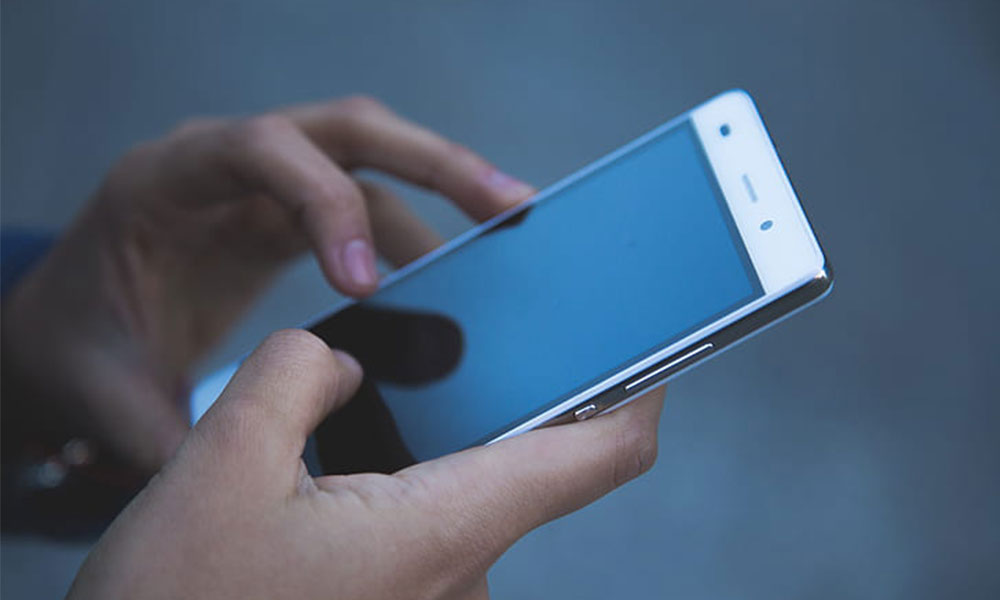LETTER | Limiting screen time for children
LETTER | The use of technology has simplified our lives. We have technology that saves us precious energy and time, relaxes us, notifies us and even acts as a partner.
These devices, such as smartphones and tablets, have been a blessing to humans. On the other hand, these devices are also a threat to our existence.
The devices also damage our physical and mental health in addition to making us sluggish and ineffective. Consider a smartphone as an illustration.
People devote themselves to their mobile devices, browsing via Facebook and Twitter, and consuming valuable time by doing absolutely nothing effective everywhere they look.
Almost a billion individuals around the globe have more than one of these phones, as they use it to download programmes, applications, information, video games, check e-mail, browse websites, listen to songs, watch films and access other important and unimportant details.
These cutting-edge technologies are developing daily. New user-facing programmes are created every day. Young people’s use of smartphones has been characterised as an enticing technology.
Young people in contemporary society are heavily dependent on their mobile devices. Youth would forego sporting footwear, flossing their gums, working out and taking showers in favour of going lacking their smartphones for the same amount of time, according to a recent survey.
Scholars concurred that smartphone dependency affects all parties and is particularly hazardous to young adults who are pursuing academic goals in higher education and training for competitors.
Smartphone use is widespread, particularly among adolescents and teenagers. Young adults’ use of smartphones has risen substantially over the past 10 years.
Although its advantages are indisputable, its adverse impacts are also becoming more apparent. The estimated total number of smartphone users in Malaysia in 2021 is 29 million.

Up until 2025, there will be an additional 1.74 million smartphone users in Malaysia due to the country’s expanding population. In Malaysia, nearly everyone has a smartphone.
Smartphones have particularly affected children, and if action isn’t taken quickly, these sophisticated devices will utterly destroy their lives.
Smartphone use among children can have advantages as well as drawbacks, making it a complicated topic. Although mobile devices have a lot of advantages in terms of interaction, educational opportunities and information availability, they can also be harmful if not used wisely and sparingly.
The following are some typical worries expressed in relation to smartphones and kids.
First off, kids who use smartphones excessively may engage in less vigorous exercise, have irregular sleeping patterns and have fewer social interactions.
Their general well-being as well as the growth of vital social abilities like empathy, communication and conflict resolution may suffer as a result.
Second, smartphones give users access to the internet and social media, which exposes kids to risks like cyberbullying, objectionable material, online predators and more.
Keep tabs on kids
It’s crucial for parents to teach their kids about online safety and keep an eye on their online behaviour.
Thirdly, according to some studies, children and teenagers who use their smartphones excessively may experience conditions like anxiety, depression and low self-esteem.
Constant exposure to social media and life comparisons can lead to inflated expectations and inferiority complexes.
Fourthly, using a smartphone while in class can interfere with students’ ability to pay attention and perform academically.
Furthermore, excessive smartphone use may hinder the growth of vital social skills and decrease in-person interactions.
Children’s use of smartphones can be a major source of distraction, making it difficult for them to focus, finish their homework and do well in school. It may result in lessened output and learning outcomes.
Fifth, keeping smartphones for extended periods of time can cause children posture issues, eye strain and discomfort in the body. In order to avoid these problems, parents should promote breaks and set usage limits.
Parents and carers can take the following steps to mitigate these negative effects:
Clearly define rules and time limits for kids’ smartphone use, and encourage them to do other things like play outside, read or have hobbies.
To ensure their safety and appropriate content consumption, be involved in your child’s smartphone use, keep an eye on the apps they download and keep an eye on their online activities.
Encourage kids to play imaginatively, engage in physical activity and spend time offline with their loved ones to promote a healthy way of life.
Foster an environment where kids can talk openly and supportively about their online experiences, worries and any problems they may run into.
Teach kids how to use the internet responsibly, the value of privacy and how to spot and report any inappropriate content or cyberbullying.
The American Academy of Paediatrics (AAP) suggests that guardians create “screen-free” zones at home by removing all screens, laptops, and gaming consoles from their kid’s rooms.
As a result, the old standbys of playing outside, studying, interests and free play can benefit children both physically and mentally.
While using smartphones responsibly and in moderation, as well as receiving the right guidance from parents, can help reduce any possible adverse impacts, this technology is still a cause for concern.
Children can benefit from smartphone technology while minimising the risks involved by limiting screen time, promoting physical activity, encouraging an open dialogue with young people, and encouraging an appropriate balance between electronic and real-world interactions.
Author is a research fellow at the Ungku Aziz Centre for Development Studies (UAC), Universiti Malaya.
The views expressed here are those of the author/contributor and do not necessarily represent the views of Malaysiakini.
RM12.50 / month
- Unlimited access to award-winning journalism
- Comment and share your opinions on all our articles
- Gift interesting stories to your friends
- Tax deductable
